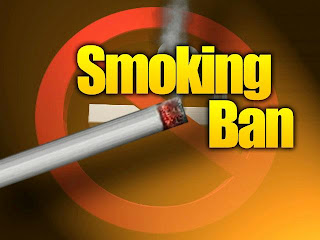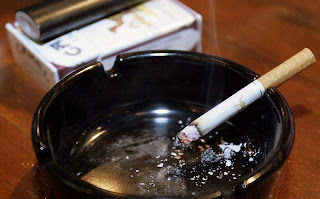
Downtown demonstrators rallied Wednesday in support of a proposition that would raise taxes on tobacco by $1.
Proposition 29 has the potential to generate $600 million per year for research, prevention, facilities, equipment, law enforcement and administration if passed by voters June 5, according to the Californians for a Cure website.
Maxine Bigler, a 15-year cancer survivor, is a beneficiary of cancer research that attended the rally and may not have lived to do so without previous funding, she said.
"To save lives," Bigler said. "That's what it's really about."
Bigler does motivational volunteer work in Chico and also travels across the world.
"I have issues," she said. "I have to walk with a walker, but so what? I go places."
Stephanie Schmidt, a senior communication studies major who interns with the American Cancer Society, educates people about cancer at health fairs, she said.
"Our last event was really sad," Schmidt said. "The children were already familiar with smoking, because they knew someone either in their family or home that smoked."
Elementary school children are familiar with tobacco, because nearly 90 percent of people who smoke start before the age of 18, according to an ACS pamphlet.
"Big tobacco only cares about one thing," Schmidt said. "Not the community or the health of its consumers - just profit."
The demonstrators, made up mostly of volunteers, yelled out "Say no to big tobacco." at passersby and passing cars.
The American Lung Association gave California an F for failing to adequately fund
tobacco prevention and control programs, according to a report released by the ALA.
California contributes 87 cents per pack in taxes while the national average is $1.46.
Proposition 29 is exactly what California needs, volunteer Casey O'Neill said.
"There's a possibility for job growth," O'Neill said. "The impact could be ginormous."
Economic relief is one benefit of the proposition, which could contribute hundreds of millions of dollars to the industries of construction, medical research, health care and law enforcement, according to Californians for a Cure.
Other political organizations, like Californians Against Out-of-Control Taxes and Spending, are opposed.
The proposition is important, but "California can't afford to start a new billiondollar spending program when we have a $10 billion budget deficit and can't pay for critically needed existing programs," the organization's website reads.
Though activists rally for an increase in education to young adults and more funding for the cause, they admit their experiences with smoking are some of the worst decisions of their lives, O'Neill said.
"I smoked until I was 23," Bigler said. "It took me 30 years to get over. Now I can't stand the smell."









